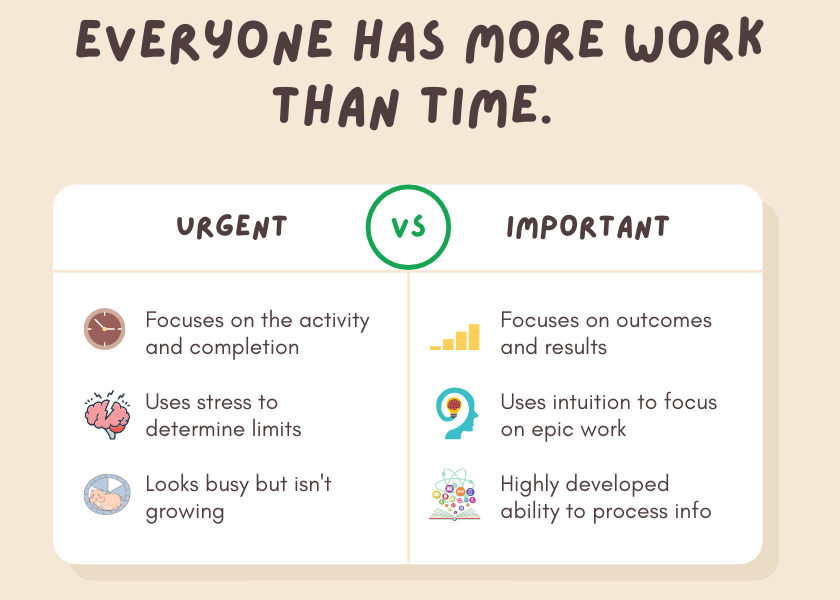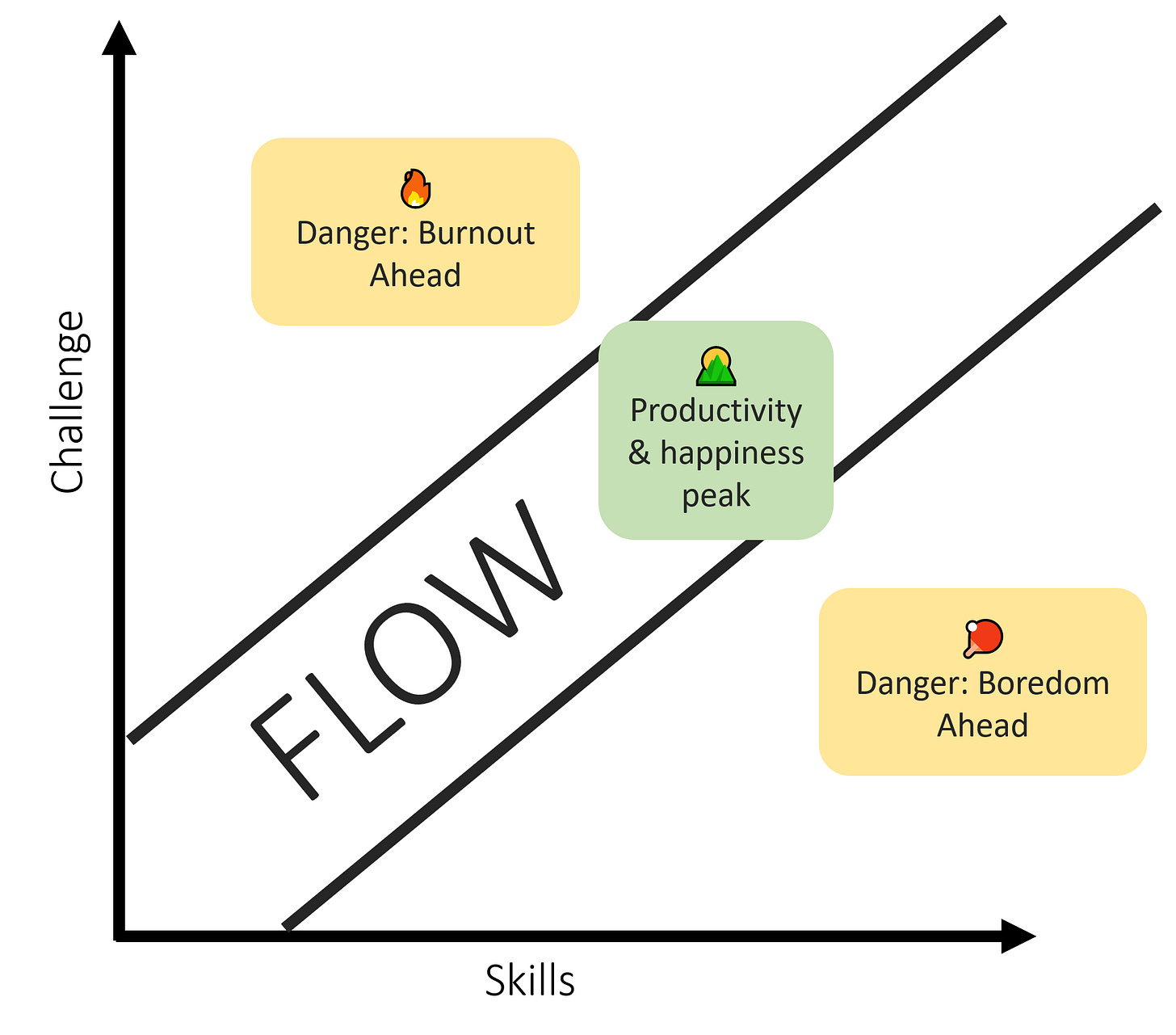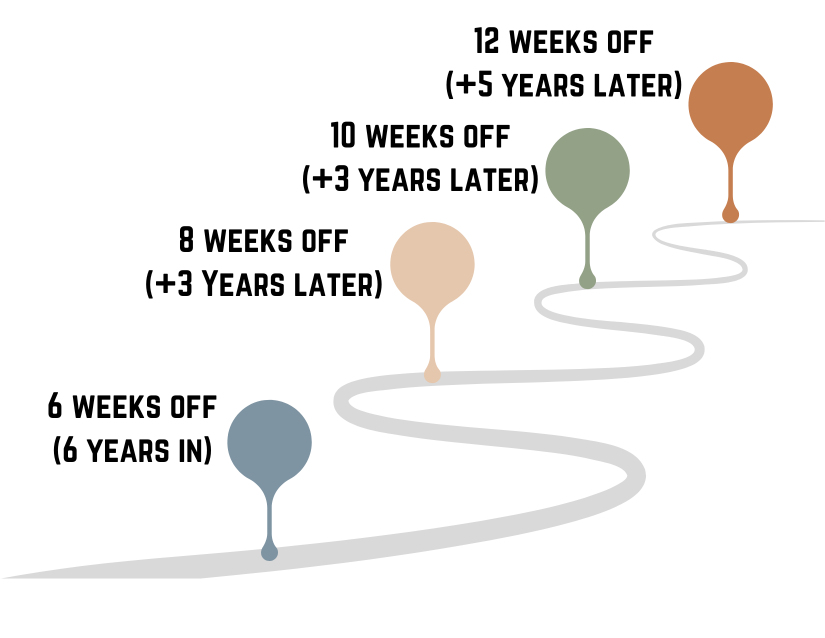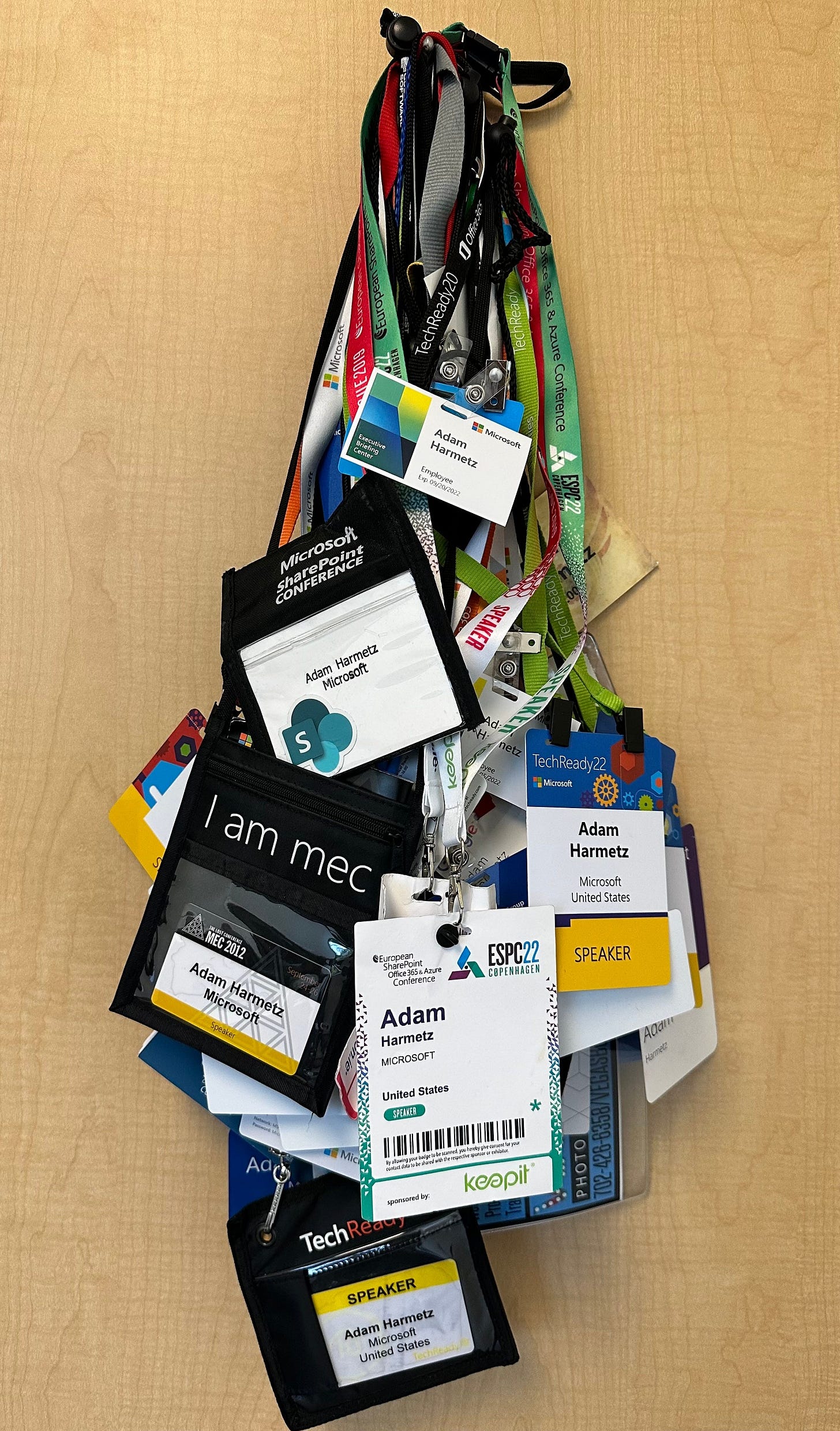🎂 Celebrating 19 Years at Microsoft with 19 Lessons
A note to my younger self about my product building journey
Dear fresh-out-of-college Adam from 2005:
Congrats on your job with Microsoft! What an interesting time to start in tech - you just signed up for Facebook during your last week of final exams at UCLA, Google went public one year ago, and the iPhone will launch in two years. You will see cloud & mobile go from niche ideas to indispensable worldwide utilities, and the AI era is just starting to usher in another paradigm shift as I write this.
Your career will span the Golden Age of tech, with all the dividends that provides as well as all the unsolved risks that powering the world economy brings - security, privacy, and AI ethics to name a few.
Today, you are a VP of Product & Data Science. The most controversial part of your career is that you stayed with the same company for 19 years, reinventing yourself as the company grew and transformed. This was not the plan and leaves you reflective on how to avoid states like good enough and comfortable. Your own lived experience these past 19 years proves that you can thrive by staking out a home on a product and team if you maintain your curiosity about how to .
Here are 19 things you’ll learn in 19 years.
Starting Your Career
1. 🏄️ Ditch the career ladder. Learn to surf the right waves.
When you start your career, you’ll be told it’s the start of a stressful upward ladder climb that must build on itself in only one direction. No, better to think about your future as catching some waves. It’ll be more fun. It will get you thinking about repetition and cycles, project selection, riding something with more momentum than you have yourself, and knowing when you are in the whitewash and need a change.
2. 🧼 Learn the difference between urgent and important.
We live in a time when the information in the world is doubling every 5-8 months now – you’ll need to invest time to ensure your ability to consume information, tasks, and communications keep growing just as fast. Smartly managing your time, your tasks, and your information diet has a way bigger impact on getting you to leadership roles than anything else.
3.🪴Evolve your job until you get paid to learn.
You are the son of a teacher; the love of learning was instilled in you at an early age. This will help to remind you of the power of curiosity as a cure for burnout. Being around those who love to learn new things will help you anticipate trends. You’ll have a mantra for when you are at your best: You should spend 80% of your time on the job learning. That’s not a typo - it forces you to incorporate learning into what you do instead of just relegating learning to a couple of classes a few times a year.
4. ✌ Only ~33% of your work makes a difference. Make that part epic.
“No matter how good you are, you're going to lose one-third of your games. No matter how bad you are you're going to win one-third of your games. It's the other third that makes the difference.” - Tommy Lasorda
This maxim is just as true in the tech sector as it is in baseball. It’ll be clear in hindsight what projects and tasks moved the needle vs. which were busywork - the trick you will learn is to develop the intuition to puzzle that out at project selection time. And, sure, sometimes it’s the high visibility projects that are worth making epic but sometimes it’s the unsung efforts. You'll remember vividly that one of your first projects at the company was to write fifty error strings for various problem conditions. You will take the time to understand each condition, establish a consistent error taxonomy, and just in general write the best damn error strings on the planet. It's not that it was hard; it was just that no one else had time to go deep like that. Epic.
5. ⏳ Resilience and grit are underrated.
The tech industry will glamorize the start of new things. But you’ll get pulled to more important projects than that: being a great editor, transforming what exists, bringing customers along, and finding the grit to finish and not just start. Building resilient products and the organizations to match is where the real strength in tech lies.
Sustaining Your Career
It’s not about “work/life balance” - it’s about managing your energy and exploring how what drives you will change over time.
6. 🏓 Detect your boredom & burnout early.
“It’s easier to recover from being annoyed than pissed off.”
You’ll get bored sometimes. You’ll burn out too. Detecting it early - before it snowballs - is the best advice you’ll get. Frameworks help. Mihaly Csikszentmihalyi’s Flow Diagram is a high bandwidth way of ensuring you think about peak performance. You will learn to take stock and place your current job as a dot on this graph periodically:
7. ☕ That itch mid-career? It's probably your transition between being motivated by mastery ("Let me get good at something!") to purpose ("Who does it help?").
Society wants you to get good at something in your 20’s and early 30’s. It’s much less clear what to do with your now finely-honed skills in your late 30’s and 40’s. It’s amazingly universal that people stumble into a mid-career crisis, feeling indebted to a profession they spent thousands of hours getting good at but not feeling like it gives as much satisfaction as when it was new. For you, the solution will be to just talk about your purpose with colleagues and patiently explore what drives you over time.
8. 🏖️ Take your retirement along the way.
Every few years, you’ll find a way to take an extended time away from work - more than just your typical 4-5 weeks of scattered paid time off every year: at least six contiguous weeks, one time up to 12 weeks. The reasons vary - honeymoon, paternity leaves, sabbatical. The pauses will make you a more interesting person and unlock your understanding of what drives you. There is a lot to learn about how to maximize your recharge time.
Software is about people, not bits
At Microsoft, the biggest multiplier to your impact will be the scale of working on problems that require thousands of people to properly solve. You’ll develop a core thesis of how you want to influence, connect, and bond.
9. ⛓️ Learn to thrive in the matrix.
“Matrix is the worst form of organizations, except for every other.” - From a recent leadership training I took
Your job as a PM will be to form coalitions around ideas and plans with stakeholders who have a different lens than you. You’ll work on problems that span across disciplines and org structures - so you’ll need to learn to thrive in this matrix, not be a victim of it. Some of the best work you’ll do is when you establish a sense of trust and safety across disciplines and orgs so that you have fun with cross-team work.
10. 🚦 Don’t start solving a problem when you should be signaling support.
“I've learned that people will forget what you said, people will forget what you did, but people will never forget how you made them feel.” - Maya Angelou
There is power in plainly sharing support for an idea or a colleague’s mission, especially by praising their work. Behind this is the need to not only focus on what people think, but what they want and feel as well. Your biggest mistakes will be when you started solving someone’s problem instead of being clear first that you recognize their agency and strengths.
11. 🤗 Find your “First Team.”
The key to happiness is to ensure you can join a “first team” of peers in PM and other disciplines that you can rely on for support. Find the space where you can be yourself and broker the deep relationships among those who can relate to your struggles. Find people you can laugh with. Your unhappiest times are when your own pride made you resist joining the tribe around you.
Making Great Products
Your chosen profession of product management will professionalize over the course of your career. It’s part art, part science – and a lot of time making decisions in the face of ambiguity. As you deliver and scale more products, four major themes will emerge that define your craft: empathy, impact, love, and trust.
12. 🌌 Empathy: Build a model of customer needs. Enable your team to run the simulation.
You will grow up early in your career as a product manager in a specialized area of software with complex customer requirements. This will be a gift - it will force you to be an expert at synthesizing customer intent. Like physics or economics, PM empathy is about building a useful synthetic model of the world around us that quickens decision making and group understanding. Importantly, you won’t build this by sitting around thinking - you will build these models by deep interaction with customers, solving their problems, hearing them complain, and trial & error.
13. 📈 Impact: Champion results over activity.
Five years into your career, the cloud paradigm shift will begin. This will fundamentally transform your profession – enabling data analysis, experiments, and more hypothesis-driven thinking. You will be responsible for transforming a slower and less dynamic product culture into one that embraces these now standard practices. You will learn to replace adjectives with facts in your performance evaluations and to always be ready with the “why” behind an activity.
14. 😍 Love: Product intuition is a learnable skill. Practice with lots of hands-on time with product.
Your job won’t only be about data and decision-making rubrics. You’ll also need to develop an innate sense of taste for high-craft products that generate user love. My biggest advice for developing this is product play - channeling that inner child as you make a habit of using the products around you.
15. 🤝 Trust: Honor the faith customers are placing in you.
There are only two jobs in tech: you build product, or you build trust. The latter refers to the “around” product work of support, sales, adoption, and customer success. As the pace of change accelerates in your industry, you will realize how much building customer trust matters just as much as building the right product. This is why you will gravitate towards nurturing the community around your products – it will be an honor to support the people who bet their careers on the ecosystem your product creates.
Leadership
Motivating and inspiring others and generating the legitimacy to do so will become an increasingly larger part of your job.
16. 🧘♂️ The Power of Calm.
People are attracted to calm leaders. You will learn to tap into patience & optimism and create systems to help others do so as well. Your latest motto: Do hard things in a calm way with me.
Do = Act, not think or talk.
Hard Things = We do what’s difficult so our customers don’t have to.
In A Calm Way = Patience, attention, focus, and optimism.
With Me = We are in this together.
17. 🔍 Where you put your attention matters.
A retiring member of your leadership team will give you a big gift on his way out - he’ll say that you should use the phrases “I need” and “I expect” more. Plainly & simply setting expectations is an essential part of being a bar raiser. Of course, there are more problems than time and resources - so leadership is about great judgment on where you focus and what you ask for.
18. 🌪️ Transitions are hard. They are when the team needs you the most.
Cloud. AI. Reorgs. New strategies. Pivot moments are when your team is most vulnerable. You’ll learn that’s when your job as a leader is to ensure the org does things that wouldn’t have happened anyway. It’s a careful balance of generating energy for the new and creating clarity out of the unknown.
19. 💖 Modern leadership is about empathy, vulnerability, and allyship.
You’ll have friends who lose their jobs due to the disruption your product causes to the industry, as moving to the cloud requires less racking and stacking servers by IT staff. This has a profound impact on their lives. What a way to humanize abstract charts on cloud growth rate and disruption to the value chain. Technology and society are more intertwined than ever. Leading diverse teams requires showing vulnerability and speaking publicly about allyship. You can read from Jack or Eric if you want, I suppose, but modern leaders need to spend more time reading Ijeoma and Brene. Less table thumping, more humanity.
Summing It All Up
This newsletter is called Mind The Beet for a reason – it’s a quote from Tom Robbins' Jitterbug Perfume that speaks to the eternal struggle of defining your own reality in the face of processes, pressure, and systems. The first 19 years of your career will be about influencing large systems, not letting them consume you. Mind the beet.
Further Reading
Starting a Career:
🏄♀️ Why New Grads Should Surf, Not Climb: The #1 piece of advice for new grads.
⌛ How does a product leader manage their time? Thoughts on time & task management and what’s worked for Adam
📚 Information Diet: Recommendations for news outlets, analysis, podcasts, and newsletter subscriptions from an information junkie
🪴How You Can Find Learning Opportunities Everywhere: A philosophy on incorporating learning into your product management routines.
💎 From Product Manager to Product Leader: A career guide with a focus on the most important inflection point.
Sustaining a Career:
💭 Finding Purpose in Tech Careers: My journey to becoming a purpose maximizer.
🥱 Burnout & Boredom: A Manager’s Pandemic Retrospective on Mental Health: Learn about Flow and other tips for managing burnout
🏖️ Adam's Field Guide to Happiness: The Secret to Amazing Paid Time Off
🐟 Adapting to mega-corp culture: Context for people moving into Big Tech jobs.
🎞️ My Career Highlight Reel: How to synthesize your career journey.
Sofware is about People, not Bits:
🔗 The People Angle: How to build x-team products
🤝 Thriving in the Matrix: An informal podcast interview on x-team work.
Making Great Products:
⚒️ Thriving as a GPM at Microsoft: 4 key roles that product leaders need to play.
🧱 Building AI Brick by Brick: What product making is like in the AI era.
👓 Developing an eye from high-craft product making: How to be a UX PM
📣 My 10 Favorite Productisms: Pithy sayings with pearls of product wisdom behind them
🎶 Taylor Swift & Product Management: Tips for PMs from her latest album
👓 Interpreting Blurry Situations: Making decisions in the face of ambiguity.
🪀 Product Play: Where my best product ideas will come from
🧳 Sharing the Point of Tech Conferences: How to be inspired by your community.
🔍 Community, Resiliency, Purpose: Themes from my product making career
🔮4 Futures & Product Management: How to think about the future as a PM
Leadership:
✈️ How to rock your onsite & team bonding moments: A playbook for getting your team together
🎁 The Gifts We Hope to Give: Learn a bit about how we approach parenting and leadership
🐝Survival Tips for Team Leaders: Reorg Edition. How to plan, decide, and announce an organizational change.
💼 VP of PM: What’s the job really like?
😶🌫️ My Mood Board: A visual way to show how I lead










